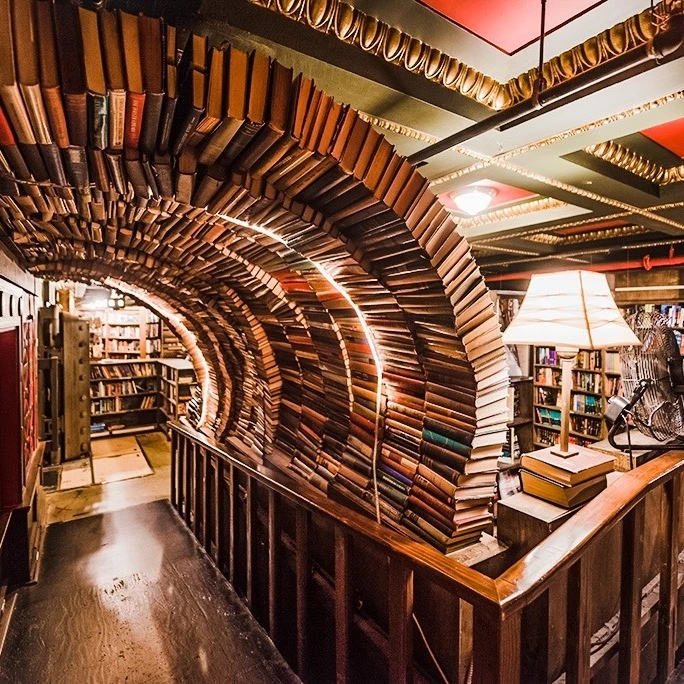Uncover the philosophy behind literary travel, where stories guide your path and destinations become living chapters of your own tale.
Travel is often seen as an escape. An adventure into the unknown, a break from routine, a passport stamp in a well-loved journal. But for book lovers, travel is something more. It’s an intimate dialogue between place and story, between movement and meaning. Literary travel isn’t just about going somewhere new; it’s about stepping into the pages of a book, walking in the footsteps of characters, and letting literature transform the way we see the world.

Imagine running your fingers along the spines of old books in the Shakespeare and Company bookstore in Paris, where Hemingway and Fitzgerald once wandered. Picture yourself sipping coffee in the very Venetian café where Donna Leon crafted her iconic mystery novels, or tracing Jane Austen’s legacy through the rolling hills of Bath. Literary travel is not just a journey—it’s a story waiting to be lived.
Travel as a Narrative Experience
Some places feel as if they were made for stories. Strolling through London’s Bloomsbury district, where Virginia Woolf and the famed Bloomsbury Group reshaped literature, or exploring Edinburgh’s winding streets that inspired J.K. Rowling’s Hogwarts, gives travel a dreamlike quality. A cobbled alleyway isn’t just an alley—it’s a portal to another time, another world.

Imagine stepping into The Eagle and Child pub in Oxford, where Tolkien and C.S. Lewis discussed Middle-earth and Narnia over pints. Or losing yourself in the stacks of Livraria Lello in Porto, one of the world’s most beautiful bookstores, rumored to have inspired the grand staircases of Hogwarts. With a book in hand and a destination in mind, the world becomes a richer, more layered place—one filled with whispers of stories past and present.

A Deeply Personal and Philosophical Experience
The Japanese concept of Ikigai suggests that fulfilment comes from doing what we love in a way that connects us to the world. Literary travel embodies this philosophy. It turns exploration into a meaningful pursuit, where passion for stories and personal discovery intersect. When we visit literary destinations, we aren’t just sightseeing, we are seeking a connection between books and places, between authors and readers, between past and present.

Unlike conventional tourism, which often focuses on landmarks and itineraries, literary travel is deeply personal. It’s about stepping into the spaces where words were born—walking the same paths, sitting at the same desks, breathing in the same city air. Standing in Emily Dickinson’s bedroom in Amherst, where she wrote nearly 1,800 poems, or visiting Louisa May Alcott’s Orchard House in Massachusetts, where Little Women came to life, brings us closer to the souls of these stories. The experience is not just intellectual; it’s emotional.
A New Meaningful Way to Travel For Book-lovers
Literary travel is more than an aesthetic experience—it’s a movement, a way to engage with places on a deeper level. It supports local bookstores, independent publishers, and literary festivals that bring communities together. Visiting a tucked-away secondhand bookshop in Prague or attending a poetry reading in a hidden café in Buenos Aires fosters cultural exchange in ways mass tourism cannot. These moments remind us that literature is alive, breathing, and deeply intertwined with the places that shape it.

Documenting these journeys on social media—sharing the magic of an old Parisian library or the coziness of a bookstore in Kyoto—helps inspire others to see travel differently. It’s not just about taking a trip; it’s about crafting an experience that lingers long after the return flight home.
A Transformative Way to See the World Through Literature
As Literary Places by Sarah Baxter beautifully illustrates, the places we visit do not just shape our travels; they shape us. They become part of our personal narratives, influencing the way we see ourselves and the world. Literature offers us a deeper way to engage with our surroundings.

By traveling with a literary mindset, we move beyond mere sightseeing. We step into the stories that shaped these places, allowing literature to color our perceptions and deepen our understanding of culture, history, and human experience. In doing so, we find a sense of Ikigai—traveling not just for the sake of movement, but for the pursuit of meaning, connection, and personal transformation.
So the next time you pack your bags, tuck a book inside—not just to read on the journey, but to guide the way. Let the words lead you, the stories shape your steps, and discover the magic that unfolds when literature and travel become one.
Join our community of 1.5M readers
Like this story? You'll love our free weekly magazine.








